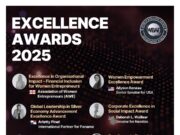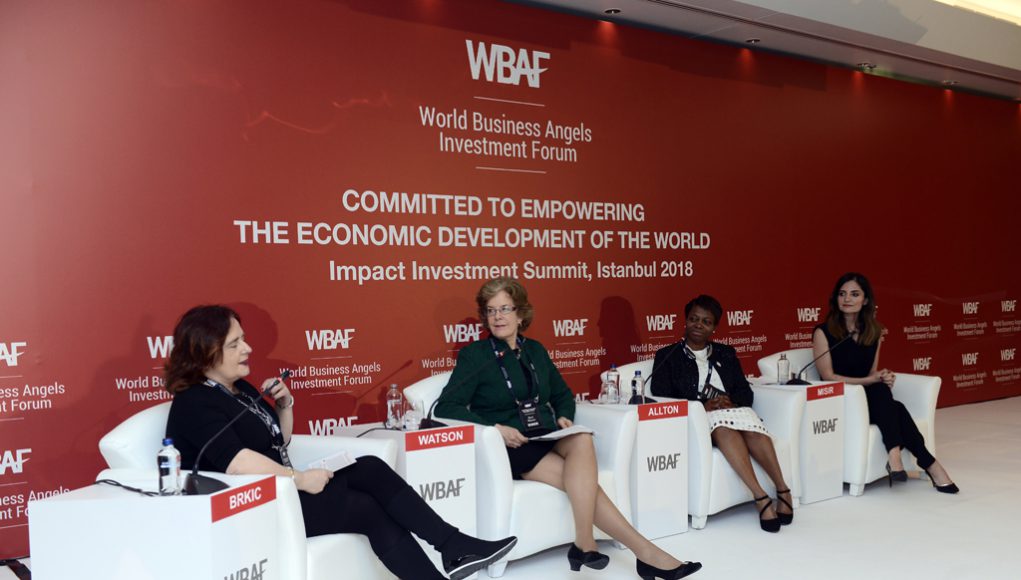Often referred to as the Davos of the early and post-early equity investment and capital markets of the world, the World Congress of Angel Investors assists the United Nations in its 2030 sustainable development goals, gathering the world’s Impact Investment Leaders to shape the global agenda for the social good in 2019.
The 17 sustainable development goals for 2030 adopted by the United Nations call for a global partnership to end poverty, promote peace, share wealth, and protect the planet. The estimated cost of implementing these goals over the next 10 years is $50–$70 trillion; the Paris Climate Agreement alone is expected to cost over $12 trillion over the next 25 years. Governmental budgets for aid and development can only go so far toward financing such projects, and even with philanthropic funds, a huge gap remains that needs to be filled.
Now is the time to focus on developing ways to finance all these social investments. The World Congress of Angel Investors hosts angel investors, corporate venture executives, fund managers, stock exchange executives and public institutions at its Impact Investment Forum 2019 to discuss a broad array of related issues, including
- Mobilizing private and public capital in innovative ways for the social good.
- Empowering women financially–the why and the how.
- How we can help women take action through innovation.
- Developing a collaboration model for impact investors and fintech start-ups to create more social good for the unbanked.
- Responsible finance and impact investment: The future of smart finance for social entrepreneurs.
Mobilizing private-sector capital in new and more efficient ways
The World Business Angels Forum recognises impact investment as an innovative finance approach to closing the gap between the funding needs for global development and the currently available resources. To attract more private capital, the World Business Angels Investment Forum is pursuing innovative financing mechanisms to mobilize private sector capital in new ways.
We need to tap into the over $200 trillion in private capital that is invested in global financial markets and ensure that capital is directed toward development efforts.
Impact investment is booming globally
The Global Impact Investing Network (GIIN) estimates a market of US$114 billion in impact investing assets, US$22.1 billion of which was committed in 2016. The expected growth in commitment in 2017 is 25.9%. The supply of impact capital is expected to rise, but so far, impact investment’s share in global financial markets is estimated to be only around 0.2% of global wealth. If this share rises to 2%, it could mean over US$2 trillion invested in impact-driven assets. Some 1,500 asset managers, with combined assets of over US$62 trillion, have signed on for the six United Nations Principles for Responsible Investment, while the larger definition of sustainable investment encompasses an estimated total of US$21.4 trillion.
European Investment Fund (EIF) Masterclass
The Congress will have a special masterclass on how investors can develop co-investment funds to attract European Investment Fund (EIF) finance. The masterclass will be given by Cyril Gouiffès, Impact Investment Manager at the European Investment Fund in Luxembourg. It will include a real case study from Croatia. At the end of the masterclass, Renata Brkic and her team will share their experience raising EIF finance for their social impact fund. Brkic raised €15 million for the social impact fund she and her team launched in 2018. Brkic leads the Global Impact Investors Committee of the World Business Angels Investment Forum and chairs the Impact Investment Summit at the World Congress of Angel Investors.
Here is the agenda of the World Leaders of Impact Investment in the World Congress of Angel Investors.
Mobilizing Private and Public Capital in Innovative Ways for the Social Good
Now is the time to focus on developing new ways to finance social investments. The World Business Angels Investment Forum brings together angel investors, corporate venture executives, fund managers, stock exchange executives and public institutions at WBAF 2019 to discuss the increasing need for innovative and effective approaches to solving social and environmental issues. This panel will focus on new ways of cooperation between governments, NGOs, corporates, and private investors that combine the forces of entrepreneurship, innovation, and capital to improve peoples’ lives. Such cooperation leads to increased awareness and can expand the investor base, which in turn fosters more inclusion and more sustainable societies as they develop action plans for impact investment.
Empowering Women Financially: The Why and the How
Women are the future of the world’s economies. They control more than $20 trillion in annual consumer spending, a figure that is expected to rise to $28 trillion by the end of 2019. By 2019, women will control 75% of discretionary spending worldwide. The proportion of working women carrying the primary financial responsibility in their families rose from 23% in 1996 to 33% in 2013. Consequently, there has never been a more opportune time for women to get serious about understanding their finances and for the industry to start serving them better. This panel will focus on ways to empower women financially.
How Can We Help Women Take Action Through Innovation?
Financial literacy is important, but it is only one part of a much larger picture. Effectively empowering women and helping them take action will have a direct impact on their financial independence and a positive influence on their lives. We first need to consider the gap in financial advice and recognise that innovation is imperative for bridging this gap. This panel will focus on the question of how financial institutions can meet the demands of women in such a way that solutions will be cheap, relevant, and accessible.
Developing a Collaboration Model for Impact Investors and Fintech Start-Ups to Create More Social Good for the Unbanked
Financial technologies can address a wide array of socio-economic problems, including gender inequality to slavery. The roots of such problems in developing countries lie in poverty and low education levels. The best way to lower cultural barriers and resist traditionalism seems to be globalization, which brings with it access to education, healthcare and financial inclusion. Globalization, however, sometimes has unintended consequences. In developing regions, globalization has created an ecosystem where citizens are often are forced to work in harsh and unhealthy work environments for very low wages. Fortunately, the tide is gradually turning, with the rise of the notion of ‘impact investment’ and with the general trend of commercial enterprises that work not only to turn a profit, but to do so in a humane manner. ‘Fintech for social good’ denotes the use of emerging fintech solutions that will enable greater access to basic human amenities for their populations. This panel will focus on ways impact investors can collaborate with fintech start-ups and scale-ups for the social good and how they can develop solutions for the unbanked segment of the world’s economy – around 2 billion people.
Responsible finance and impact Investment: The future of smart finance for social entrepreneurs
There is an increasing trend in capital markets to use responsible finance to search for – and fund – solutions to many of the pressing social or environmental issues of our time. Corporate ventures also intend to invest up to 10 percent of their private equity investments with private equity fund managers whose investment strategies they expect to generate positive social and environmental outcomes, and who are willing to report on non-financial impact metrics. This trend is important for shaping the future of smart finance in capital markets. This session will be essentially a think-tank session for the future of responsible smart finance in impact investments.
Women leading the way in impact investing
More high net worth women have engaged in impact investing, inspired others, influenced advisors, and served as champions of change to accelerate the development of an inclusive and vibrant impact investing ecosystem. As a result, there is in an expansion of sustainable capital to address the most pressing social and environmental issues worldwide. This session will discuss how global capital markets can include more women in the impact investing ecosystem and what the benefits from the network of women investors are. Panellists will discuss the growing influence of women (those who earn as well as those who inherit) over the world’s wealth as investors as well as influencers in the financial, philanthropic and corporate sectors.














